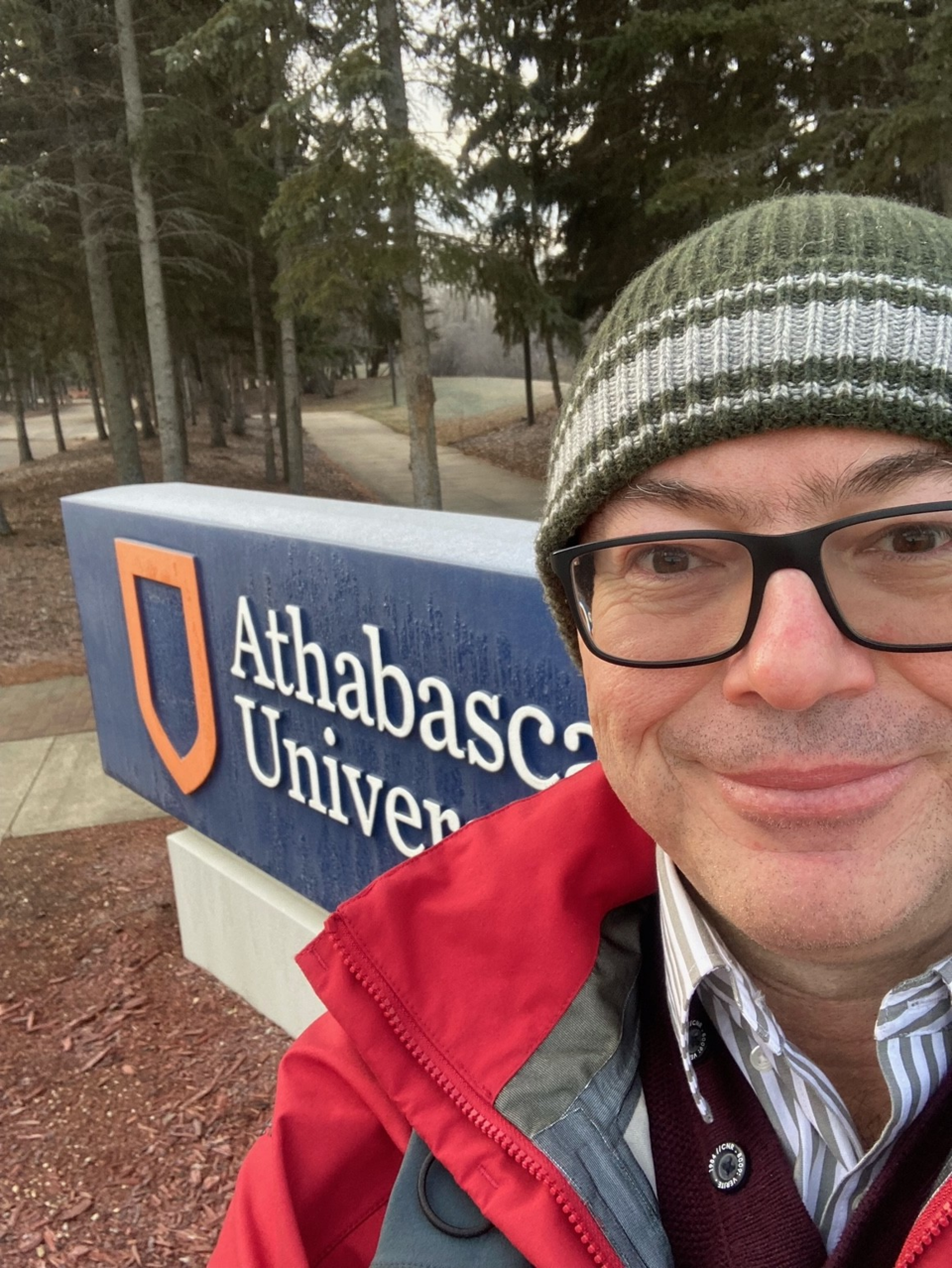ATHABASCA – An Australian researcher is hoping his expertise will help Athabasca University (AU) develop programs to make research more available to healthcare workers in Alberta, a move he says helps prevent burnout and improves morale in hospitals.
Dr. David Schmidt works at the University of Sydney as a rural health researcher, as well as a clinical physician. A recent trip to Canada — first to the Memorial University of Newfoundland and then to Athabasca — gave him an opportunity to combine his two areas of expertise and help Canadian schools create their own programs.
“Rural health workers can see the problems that need investigating, but they don’t often have the skills and experience to do those things, like a research project or an evaluation,” said Schmidt during his late November visit.
“If we build the skill where the people are seeing the problems, we can have research that’s done that tackles important rural issues.”
Schmidt said the ability to do independent research also helps keep workers in rural settings, something he has seen first-hand in Australia, where he said the healthcare system, and it’s issues, mimic Canada’s.
“When I went through my undergraduate studies, the people who were allowed to do research were the honours students; they were the top five per cent of the class, the special people,” said Schmidt. “When I graduated, I didn’t see research happening around me, it was happening in research units and universities. It wasn’t happening in the hospitals and community health centres where I was working.”
Schmidt said the front-line workers are the men and women who know what needs to be addressed, and part of his job is helping them find ways to fix those issues. Whether it is a professional analyzing whether patients with cognitive issues, like dementia, receive the same access to pain relief after breaking their hip, or a surgical nurse figuring out if warmed cotton blankets or crinkly space foil blankets work better, the questions asked have a direct impact on local wellness.
“These projects, because they’re often small, they’re not going to drive widespread change, and they’re often messy. But they make a difference in people’s communities and that’s the thing that rural clinicians want to see — they want to see better care for their patients,” said Schmidt.
An international hub
Schmidt’s short stop in Athabasca was jam-packed with visits, talks, and consultations with people around the north-central region of Alberta. With help from Dr. Catherine Swindlehurst, a member of AU’s board, Schmidt shared his expertise with a variety of institutions, including the area’s primary care network, who were excited to hear what he had to say.
“What was really interesting about David’s experience also operating his campus in a rural area in Australia is the parallels he saw,” said Swindlehurst.
“The Primary Care Network was really taken by this idea of, ‘How can we do research within our practices and what does that mean in terms of better patient care?’”
Swindlehurst also talked about the role AU has to play in the discussions and in possible future projects, noting the universities ability to facilitate connections was a unique strength for the region.
“One of the great things about a university, especially Athabasca, is it’s a natural convener for a lot of different groups,” she said.
“From a random visit to Athabasca, international collaboration is starting to bubble up and happen, and that’s really the power of a university like Athabasca.”


